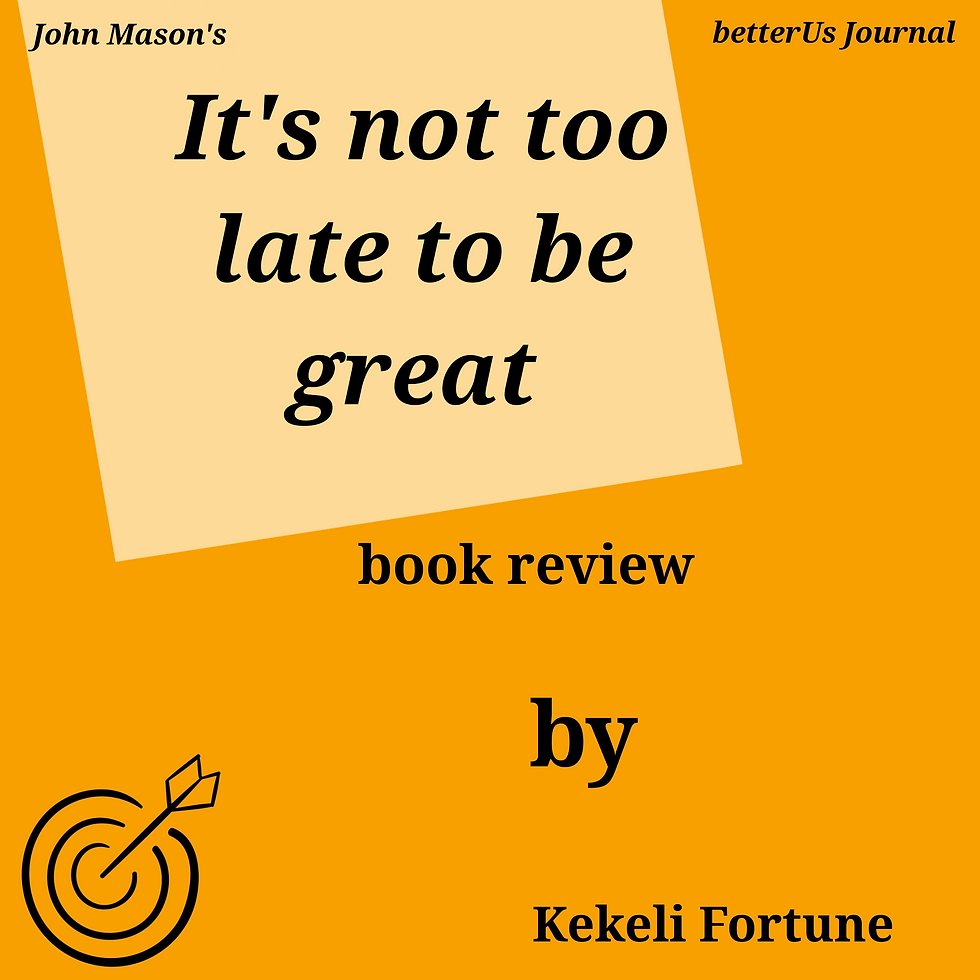A book review of "rich dad poor dad"
- Kekeli Fortune

- May 7, 2020
- 4 min read
Updated: May 10, 2020
by Kekeli Fortune

Hi friends! I'm so glad to have you back for today's book review. So, rich dad, poor dad is a book that was written by Robert Kiyosaki—a man who is known for some really unpopular views on how to make money—in the year 1997. Personally, I think this book opens your eyes to the mistakes, habits, and wrong beliefs that often result in poverty, and a life-time of living in debt. I'm so happy to share my lessons with you, but you should definitely read it for yourself; lots to learn and unlearn. This article will focus on the importance of financial literacy in pursuing financial independence, and some advice on getting started.
why should I learn to be a financial literate?
Well, having lots of money is such a great thing. I'm sure if I chanced upon some money, maybe an inheritance or winnings from the lottery, I would be ecstatic. My mind would immediately race to all the problems I can solve with the money, and all the the things I can buy. But as Kiyosaki rightly stated, without financial intelligence, problems would quickly arise, and all of the money would be gone in no time; however, with financial intelligence, one can easily produce more money. He also pointed out that to be financially independent does not depend on the amount of money you make in a lifetime, but rather, on how much of it you are able to keep.
Learning to be a financial literate begins with having the right mindset, just as anything else. It begins with opening up one's mind to new ideologies and new possibilities. The most basic lesson one must learn when it comes to financial literacy is the difference between an asset and a liability. Kiyosaki learnt from his rich dad that an asset causes the movement of money into your reserves; whereas a liability causes the loss of money from your reserves.
He always makes it a point to correct the belief that a house and car are not examples of assets. A house or a car that is a source of income is no doubt an asset, other than that, they are just liabilities. Some main categories of assets include a business (starting your own company), real estates, paper—stocks, bonds, mutual funds, and savings— and lastly, commodities: oil and gas, food, gold and silver. Thus, these are the types of assets that one can invest in, and thereby making their money work for them instead of spending a lifetime working for money.
Time spent focusing on your business is also a great asset. People tend to use most of their time working for others and making money for them at the peril of their own businesses and money making ventures.
So an important detail to be remembered always is whereas the rich accumulate assets, the poor and middle class accumulate liabilities and debt. Therefore, Kiyosaki revealed that if you want to be rich, work at stockpiling on assets; however, if you want to be poor, collect liabilities.
Learning to be a financial literate also includes gaining understanding of financial statements, income statements, debts, insurance and accounting. An income statement simply provides records of your income and expenses. It also includes learning about taxes and tax laws. So definitely spend your time and resources acquiring knowledge and being educated in the above fields.
Where to start....
The popular belief has always been "go to school, learn hard, get a good job, work hard, earn more money, spend it". But this belief is now evolving as we are gaining more insight to how things actually work in life and in this world. We are now discovering the real secrets and getting to understand them. To begin the journey to financial literacy, and therefore to financial independence, these are a few guidelines provided by Robert Kiyosaki:
1. start by asking yourself why you want to be wealthy, and make sure to provide yourself with a compelling answer; a reason or purpose that can keep you going during hard and challenging times.
2. Never put aside your quest to financial freedom to enjoy frivolous luxuries. Everything should be planned and accounted for. Also, make sure to learn skills needed to be proficient in financial methods and strategies on a daily basis.
3. Choose friends that continue to teach you and inspire you.
4. Learn a new financial skill, perfect that skill, and make sure to practice it always.
5. Discourage the habit of blowing money on unnecessary things; learn some self-discipline.
Self-discipline is very crucial in preventing an individual from losing money to useless things because of an increase in cash flow, maybe a raise in salary or extra income from investments. Without self-discipline, one would end up right where they started.
There are 5 more guidelines mentioned in the book, but I can't discuss them here since I'm trying to keep this as brief as possible.
But, to end this session...
My top lessons are as follows:
Strive to obtain financial literacy if your goal is to be wealthy; since knowing the right things to do with money is the only way to make more money.
If you want to live a life of affluence, make sure you are building a solid asset column which is working to provide you with so much income that you can afford such luxuries and even re-invest in your assets.
I hope you have been inspired to embark on the journey of financial independence. And also, you have been inspired to attain financial literacy and financial intelligence. I appreciate the time spent with me, and I hope you appreciate it too.





Comments